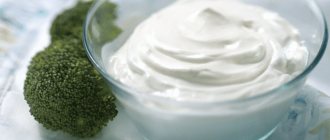Calcemin Advance is a dietary supplement, a vitamin and mineral complex that regulates the metabolism of calcium and phosphorus in the body. The drug contains calcium, magnesium, vitamin D3 (colecalciferol), several minerals (boron, manganese, zinc, copper), as well as excipients. Available in pink oval tablets.
In addition, there is also the dietary supplement Kalcemin. It contains the same substances as Calcemin Advance, but in much smaller quantities. Available in white oval tablets.
Why does a nursing mother need calcium?
Calcium is a vital macronutrient for the health of every person. In pregnant and lactating women, the need for this mineral is significantly increased.
Main functions of calcium:
- formation of bone, cartilage tissue and teeth;
- normalization of calcium-phosphorus metabolism;
- participation in the functioning of the muscular, cardiovascular and nervous systems.
In everyday life, a woman receives a sufficient amount of calcium from food, but during lactation most of it accumulates in the milk that the baby receives during feeding. As a result of the loss of this mineral, brittle nails and hair, brittle bones and teeth, and joint pain occur.
The mother's body cannot independently compensate for calcium deficiency , so nursing women are recommended to use medications such as Calcemin and Calcemin Advance.
Calcium deficiency can lead to serious health consequences for the baby, such as rickets, delayed teething, tooth decay and muscle spasms.
Calcium during breastfeeding: how to take and which one is better
Calcium is necessary both for the full development of the baby and for the restoration of the woman’s body after childbirth. This important mineral is involved in the formation and strengthening of the child’s bone skeleton and maintains the health of the mother’s hair, nails and teeth.
Calcium during breastfeeding
During breastfeeding, a woman especially needs calcium due to the restructuring of her hormonal system. It tends to recover within six months after childbirth, but this is only possible if you eat food containing enough of it.
To compensate for the lack of calcium in the body, nursing mothers are advised to adjust their diet or even start taking special medications, but more on that later.
Benefit
Calcium is an essential micronutrient for nursing mothers. It, like iodine, iron, zinc, is actively involved in the development and structure of the body of the mother and baby and performs the following functions:
- strengthens hair and nails;
- participates in the formation of bone and tooth enamel;
- helps strengthen the walls of blood vessels;
- reduces the amount of cholesterol in the blood;
- relieves stress, tension and fatigue;
- increases muscle tone;
- normalizes blood pressure;
- regulates the functioning of the pancreas and thyroid gland;
- stops the development of osteoporosis;
- prevents the formation of blood clots.
Calcium intake for nursing mothers
The daily calcium requirement for breastfeeding is 1.5 g. This amount is contained in 1.5 liters of milk or 150 g of cheese.
It is not recommended to exceed the dose, because Excessive consumption can harm the body and lead to the development of hypercalcemia, which causes:
- increased drowsiness;
- fatigue;
- impaired concentration;
- the appearance of depression;
- loss of appetite;
- a sharp decrease in body weight.
Symptoms such as:
- nausea;
- vomit;
- arrhythmia;
- hypertension.
Recommended Diet
Proper nutrition is the main condition for replenishing calcium during breastfeeding. Many products contain it in sufficient quantities, but you need to take into account that some of them can cause allergies or negatively affect the child’s health.
In addition, absorption is negatively affected by:
- salty food;
- high fat milk;
- products with oxalic acid.
Calcium salts are washed out of the body of a young mother when consumed:
It is better to give preference to hard cheeses
Dairy products as a source of microelements
Dairy products are a common source of calcium. It should form the basis of nutrition for nursing mothers due to the large amount of nutrients it contains.
Fermented milk products help improve digestion, because... they contain lactic acid bacteria. In addition, lactic acid improves the absorption of calcium in the intestines.
The following dairy products will help compensate for the lack of microelements:
- Natural cow's milk. Although the product is rich in Ca, it should be consumed in small quantities.
According to the recommendations of modern pediatrics, in the first 3 months of a baby’s life it is better to abandon it altogether. Milk contains a large amount of protein, to which a child may develop an allergic reaction or dyspepsia. - Cottage cheese or homemade yogurt. The presence of calcium in these products is high, and they do not pose any danger to the health of the baby.
- Cheese. Women during the lactation period are recommended to include hard cheeses in their diet, because
in soft species the amount of calcium is insufficient. It is forbidden to consume processed cheeses, because... they often contain chemicals that cause an allergic reaction or even poisoning.
Homemade yogurt is an excellent source of calcium
Top 5 Calcium-Containing Foods for Nursing
When breastfeeding, a large amount of microelements, including calcium, is washed out with milk, so young mothers should eat more foods high in calcium.
Below are the top 5 foods by calcium content per 100 g serving:
- Sesame – 1150 mg. It is recommended to add it to flour products or salads, or you can eat it just like that.
- Almonds – 254 mg. Any nuts are not easily absorbed by the body, but their moderate consumption will be of great benefit to a nursing mother. 2 times a week, 30-50 grams will be enough to strengthen hair and nails.
- Fresh herbs, especially parsley – 245 mg. Including greens in your daily diet will help cope with calcium deficiency in the body. It is recommended for nursing mothers to eat spinach, parsley, broccoli, and dill.
- Dried apricots – 170 mg. It is a useful product for young mothers. In addition, this is an excellent option for preparing delicious compotes and desserts.
- Dried beans – 150 mg. Legumes are not an easy product for the digestive system, so it is better to use them with caution so as not to provoke gas in a newborn.
Lack of calcium in the body
Calcium deficiency causes severe weakening of the body. Its decrease often leads to malfunction of various organs. This phenomenon often occurs in nursing mothers and children.
It is important to identify the deficiency in a timely manner and take action, because the consequences may be irreversible.
Signs of deficiency
If the body lacks a mineral, this may manifest itself in the following clinical picture:
- brittle nails;
- crumbling of teeth;
- dry skin;
- weakness;
- convulsions;
- numbness of fingers;
- decreased concentration;
- pain in muscles, joints;
- rashes, acne on the skin;
- bleeding gums;
- systematic headaches;
- heart rhythm disturbances.
If your hair is splitting or falling out, this may also indicate a lack of calcium.
Consequences for a woman
The consequences of a deficiency for a woman can be the following pathological conditions:
- hypertension;
- urolithiasis disease;
- bleeding;
- frequent fractures;
- osteoporosis;
- osteoarthritis.
These diseases develop quickly due to reduced immunity, so it is better not to delay a visit to the doctor.
Consequences for the child
Calcium deficiency in a child can result in the following problems:
- anemia;
- myopia;
- pulmonary failure;
- malocclusion;
- deformation of the legs, sternum, frontal bones;
- frequent limb cramps.
The importance of the mineral for a child’s health is great, because this element has a beneficial effect on its growth and development. He is responsible for:
- bone density;
- timely growth of teeth;
- strengthening tooth enamel;
- metabolism;
- increasing immunity.
Ignoring the symptoms of mineral deficiency in the body often leads to delayed physical and mental development.
Do I need to take calcium supplements and which ones are better?
A nutritious diet does not always eliminate the problem of calcium deficiency in the body. In such situations, medications selected according to the doctor’s recommendations come to the rescue.
Single drugs
These medications contain pure Ca and include the popular calcium gluconate. It does not harm the body, but people with bladder and kidney problems should avoid it to avoid the formation of stones.
Combined
The composition of these drugs includes the active component - vitamin D3. The most popular include:
- Calcium D3 Nycomed.
- Calcemin Advance.
- Calcemin.
Unlike mono-drugs, these drugs are more effective, because Calcium is absorbed by the body better in combination with sun vitamin.
Multivitamin complexes
The necessary vitamins and microelements are included in these complexes, however, according to many experts, multivitamins are not absorbed as well as single preparations. Among these drugs are
- Elevit.
- Mom's health.
- Vitrum Pronatal Forte.
Recommendations for breastfeeding
When choosing any drug, a nursing mother should always consult a doctor. The presence of a problem and its extent can only be determined by conducting an accurate laboratory analysis.
Self-administration of medications can cause irreparable harm to the body.
Contraindications to taking calcium supplements and precautions
Calcium supplements are prescribed to nursing mothers with great caution, i.e. Only the doctor decides the dosage of the drug.
All sources of microelements in a woman’s diet are taken into account. The specialist must also monitor the woman’s condition throughout the course.
Contraindications to taking the drug are:
- kidney diseases;
- excess vitamin D;
- renal failure;
- acute tuberculosis;
- sensitivity to the components of the drug;
- age up to 3 years.
Conclusion
Calcium is one of the most important microelements for the health of a nursing woman and child. Calcium-rich foods should always be present in the diet.
As a last resort, the deficiency must be compensated with drugs from pharmacies (consultation with a specialist is required).
Remember that a lack of calcium can lead to irreparable consequences.
Source: https://Detky.ru/grudnoe-vskarmlivanie/calcij-pri-kormlenii-molokom
In what cases is it necessary?
The main indication for prescribing Calcemin during breastfeeding is to compensate for calcium deficiency in pregnant and lactating women.
Replenishment of calcium is necessary for:
- strengthening teeth and restoring enamel;
- prevention and treatment of osteoporosis, rickets in children;
- improving the condition of nails and hair;
- strengthening the walls of blood vessels and improving blood clotting function;
- reducing the likelihood of thrombosis;
- improving the functioning of the nervous system and psycho-emotional state;
- normalization of blood pressure;
- improving the function of the thyroid and parathyroid glands.
Contraindications and side effects
In addition to indications, there are conditions in which it is better to refrain from using Calcemin:
- the occurrence of an allergic reaction (of any severity);
- hypercalcemia (increased levels of calcium in the blood) in a newborn;
- high concentration of calcium in the urine or blood of the mother;
- liver or kidney failure;
- urolithiasis in a child or mother;
- taking calcium antagonists (for high blood pressure);
- for some cancers.
Side effects of Calcemin are observed infrequently, mainly due to non-compliance with doctor's prescriptions.
They may present with gastrointestinal symptoms:
- nausea;
- vomiting;
- flatulence.
In case of overdose or excessive use of the drug, hypercalcemia and hypercalciuria (increased calcium levels in the urine) occur. Rarely, an allergic reaction (rash, swelling) may occur .
How does it affect lactation and the baby?
The drug begins to be prescribed to women from the 20th week of pregnancy, when the formation and development of the fetal musculoskeletal system occurs. It exerts its effect thanks to a single blood circulation system between the mother and child.
After childbirth, Kalcemin is prescribed for the entire lactation period. Thanks to its ability to penetrate into breast milk, calcium accumulates not only in the woman’s body, but also reaches the baby. This promotes the normal development of the musculoskeletal system and all organ systems, and prevents the occurrence of rickets.
Research and testing of the drug [1]
Studies have been conducted that have shown that taking Calcemin during pregnancy promotes normal fetal development. The calcium contained in the preparation helps to form and strengthen the baby’s bone skeleton. Later, after birth, this mineral reduces the child’s risk of fractures of the limbs.
Thanks to copper, another of the components of Calcemin, the fetus is less likely to have growth retardation and stop the development of bone joints. Copper deficiency in the mother's body can lead to deformation of the fetal skeleton and the birth of a child with short stature.
One study of the drug Calcemin Advance involved 2 groups of women. Testing took place for 12 months. One group took dietary supplements throughout the study, and the second group did not receive the drug at all. Women from group 2 received recommendations on proper nutrition and exercise. A year later, it turned out that the group that took Calcemin significantly improved their quality of life. No one in this group had fractures. Laboratory tests showed normal levels of magnesium, calcium, copper, phosphorus and zinc in the blood of all women. In the second group, one of the participants had a broken arm, and some women had decreased levels of important elements in the body.
This study proves that taking Calcemin or Calcemin Advance is beneficial for all women, including those who are preparing to become mothers in the near future.
Recommendations
It is better to take the drug during or immediately after meals . The drug should be washed down with a glass of milk or still water. For a more effective effect of the drug, it is advisable to review the diet, enriching it with fermented milk products (milk, cottage cheese, yogurt, cheeses). The greatest amount of calcium is found in:
- sesame seeds;
- nuts;
- beans and dried fruits.
If any complications or side effects occur, consult your doctor immediately.
The standard dose of Calcemin for a nursing woman is 1 tablet 2 times a day. But during the consultation, the doctor determines the required dose of the drug individually.











